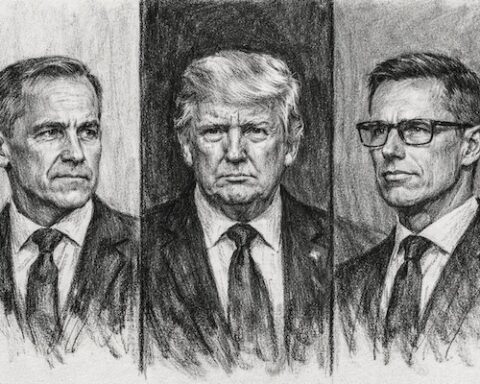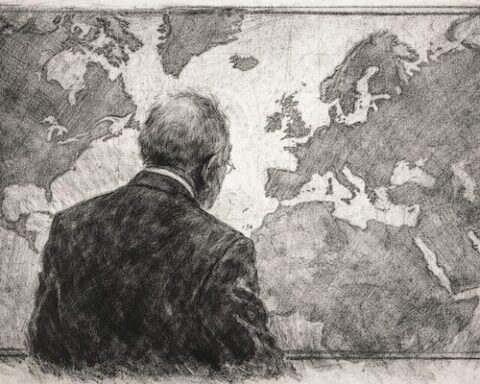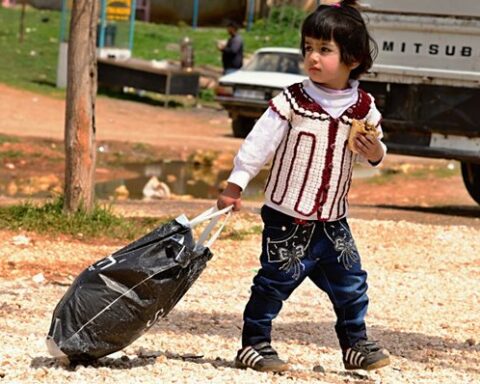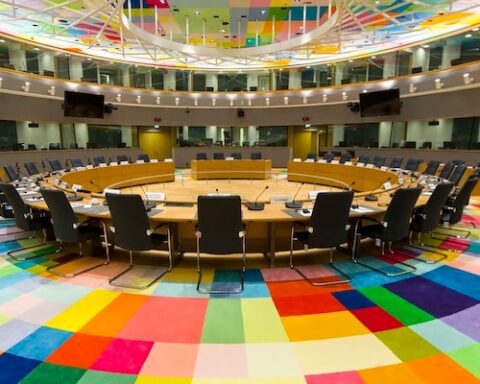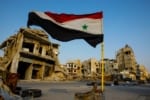OPINION | Russia’s Vladimir Putin has a clear vision of his international objectives and how to achieve them. The Balkans and Turkey play a role in these plans, especially those aimed at weakening NATO, stopping its expansion, and diminishing the desire of countries to join the European Community.
History does not repeat itself in every detail, but the broad patterns of history do reflect certain similarities. Nowhere else does this ring truer than in the Balkans. Winston Churchill once said, “[The Balkans] produce more history than they can consume.” While not claiming Churchill’s brilliance, I would modify the quote to say, “The Balkans produce more mythology than they can consume.”
History in the Balkans is constantly molded and reshaped to support the predetermined prejudices and half-truths espoused by various ethnic groups. And one thing is certain – no one ever forgets a slight or perceived injustice. If you harmed my great grandfather, you harmed me, and I must seek redress. If, on the other hand, someone sided with me hundreds of years ago, he is forever a friend, regardless of the efficacy of past interventions.
Today, we are experiencing a pattern somewhat similar to that of the 19th century. Russian President Vladimir Putin wants to restore the power and prestige – not of the Soviet Union – but of Czarist Russia. In Turkey, President Recep Erdogan carries a similar desire – a return to the glories of the Ottoman Empire, with Erdogan playing the role of a 21st century Sultan.
In the 1900s and before, the Russian Czar and the Ottoman Sultan were the great rivals in the Balkans. The Ottoman Empire, for whom the term “Sick Man of Europe” was created, was in decline after centuries of Islamic expansion that took the faith of the Prophet all the way to Tours in France in 732 AD and to the walls of Vienna in 1683.
The Serbs, over five centuries, repeatedly rose up against their Muslim overlords and were frequently, to one degree or another, supported by their co-religionists in Holy Mother Russia which took on the responsibility for all Orthodox Christians in Southeastern Europe.
These and other actions left a residue of Serbian nationalistic regard for Russia. In World War I, it was Czar Nikolas II who came to the defense of Serbia against the Austro-Hungarian Empire, where it is estimated that one in three Serbian adult males perished in the war. In April 2014, Russia donated a statue of Czar Nikolas II to Serbia as part of a park renovation it funded in Belgrade.

Today, Serbian volunteers are fighting in solidarity with ethnic Russian separatists in the Donbass.
Putin’s Vision
Russia’s primary goals under the leadership of President Vladimir Putin are: to restore Russian prestige; to weaken European Union (EU) influence and independence while undermining democratic norms; to stop the spread of the NATO Alliance; and to improve the Russian economy (Putin’s domestic Achilles’ heel).
Towards these goals, Russia’s relationship with Serbia and the region of Southeastern Europe plays only a secondary, but still significant role.
Russia has, under the leadership of Putin, supported Serbia in its diplomatic and territorial disputes with American-sponsored Kosovo, much as the Czars supported the Serbs in their rebellions against the Ottoman Turks. This is a strong point of leverage Putin holds over Serbian President Alexander Vucic. Politically, Vucic needs to show his base that he has not given up on reestablishing Belgrade’s control over the historical Serb heartland of Kosovo, which Serbia lost after NATO’s 1999 bombing campaign.
Late President Slobodan Milosevic made Serbia a pariah state through his struggle for “Greater Serbia” by inflicting widespread terror, murder and genocide. After Milosevic’s failure to carve out Serb territory in Croatia, gaining only a partial victory in Bosnia and Herzegovina, he climaxed his debacle by losing Kosovo to the hated Albanian ethnic majority. Ironically, he launched his disastrous rise to power in 1987 with a nationalistic speech at Kosovo Polje, the site of Serbia’s ultimate defeat at the hands of the Ottomans on June 15th, 1389, just outside of the Kosovan capital Prishtina.
Like Putin’s acquisition of Crimea and ongoing interference in Eastern Ukraine, President Vucic’s hard line on Kosovo is important to his political survival. It also garners very little international favor. Consequently, the Serbian President benefits from the support of Serbia’s traditional ally, Russia. On the other hand, his failure to resolve matters with Prishtina leadership has blocked Vucic’s other major goal of achieving European Union membership, which is in-line with one of Putin’s primary foreign policy objectives, to slow the spread of EU influence.

In reality, there is little concern for Putin of Serbia becoming a NATO member in the foreseeable future. Serb resentment about the American-led NATO bombing campaign will take decades to diminish. Consequently, there is little appetite among the populace to join the alliance they feel cost them both Kosovo and their rightful share of Bosnia and Croatia. They see this as just one more betrayal in a long history of anti-Serb bias.
Putin has, however, been increasingly alarmed by NATO creeping ever closer to Russia’s borders. One Eastern European country after another has succumbed to the allure of the most powerful military alliance in the world and the anti-Russian security guarantee it provides. Cut off from “rescuing” the Russian minority populations in the former Soviet Baltic states by Article 5 of the NATO Charter, Russian influence has redirected further southward, first to Ukraine and now to the Balkans.
Having already lost several of the Southeastern European countries to NATO, and significantly, Croatia having celebrated its tenth anniversary of membership, Putin appears determined to give up no more.
Just this week, a court in Montenegro sentenced two pro-Russian opposition politicians to jail for attempting to foment a coup and assassinate Montenegrin Prime Minister Milo Djukanovic in October 2016, the eve of that country’s accession as NATO’s 29th member. Montenegran prosecutors alleged that the plotters had Kremlin support to assassinate Djukanovic and block NATO accession. Russia has denied any connection to the coup.
Putin’s best current opportunity to halt losses to NATO is in Bosnia and Herzegovina, where the American-imposed Dayton constitution makes it possible for any one of the three constituent peoples to block almost any significant change.
Consequently, Russia has consistently supported Bosnian Serb nationalist and populist politician Milorad Dodik, who has thus far delayed Bosnian accession to NATO. Russia continues to provide Dodik with loans, political campaign funds, and police and civil defense trainers and advisors, while encouraging Dodik to continue the dream of a “Greater Serbia” even if greatly diminished from the days of Milosevic. Dodik has always argued for the dismemberment of Bosnia and Herzegovina, yet did not advocate joining his Republika Srpska with the Serbian motherland, largely because he thought it more advantageous to his personal interests to be a big fish in a small pond.
Recently, however, Dodik has been more vocal about Republika Srpska becoming part of Serbia proper and has argued that the Drina River is not the border between Serbia and Bosnia. As a current sign of Dodik’s ruthlessness and participation in the Putin-favored destabilization of Bosnia and Herzegovina, on 22 April 2019, prominent Bosnian-Serb moderate and pro-Western businessman Slavisa Krunic was assassinated in a shootout just north of the Republika Srpska capital city of Banja Luka. Bosnian Security Minister Dragan Mektic (a highly respected Serb official and member of the ethnic Serb political party that rivals Dodik’s) stated to the press that Krunic’s killing had the “signature” of the authorities, without specifying which authorities he had in mind. As in Russia, this kind of political murder is almost never officially solved.
Dodik has proven, far more than Vucic, to be Putin’s favored kind of tool.
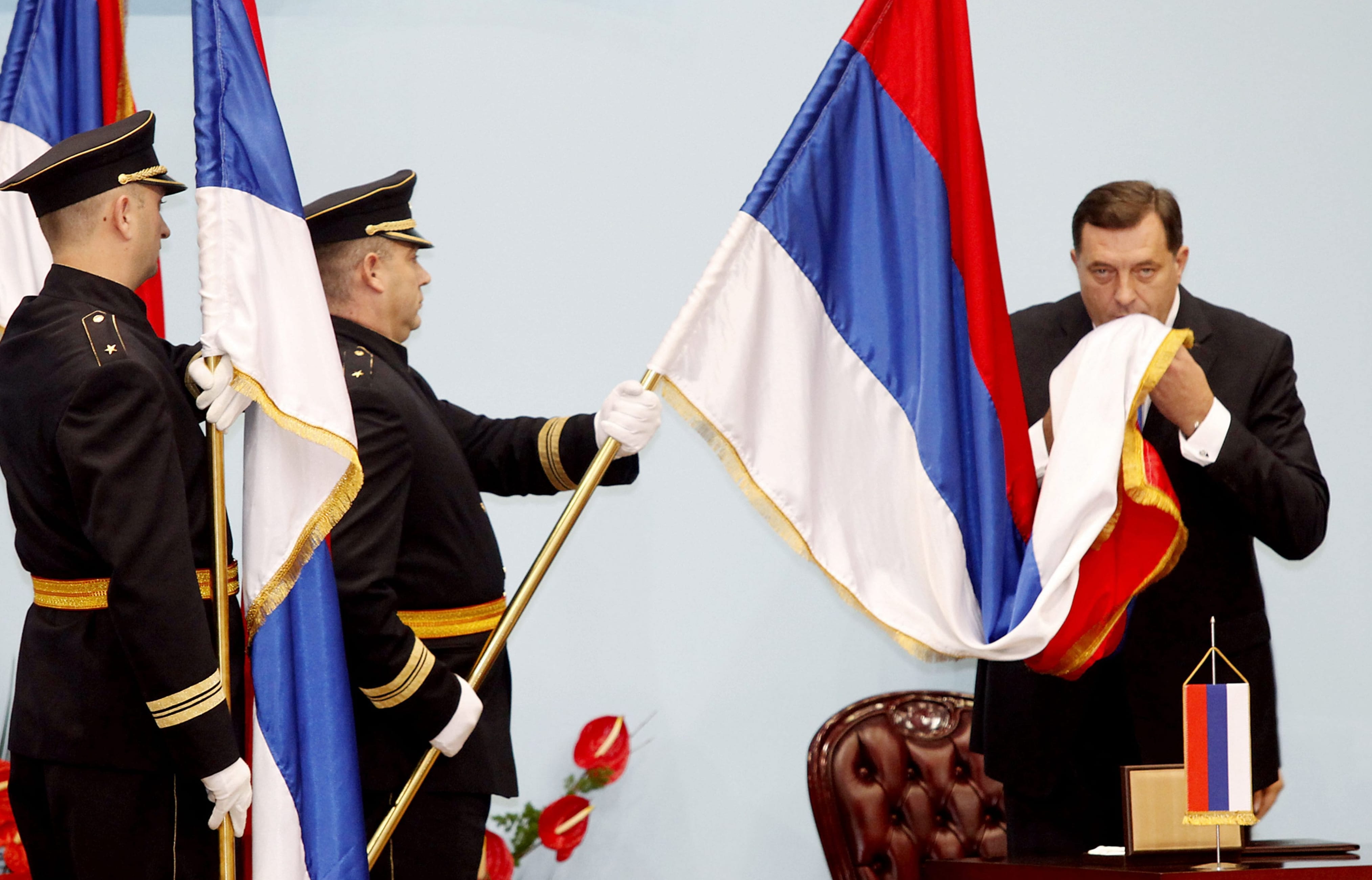
Along with Russia’s political/military focus southwards, Putin has also redirected future gas pipeline plans to the South in the form of projects known as “South Stream” and “Turk Stream.” These enable Russia to limit the control more advanced (and antagonistic) EU and NATO countries to the North have over the shipment of energy, while providing benefits both to Russia’s economy and the economies of weaker and friendlier countries to the South.
Serbia, Hungary and Turkey would all benefit from these pipelines and would become even more dependent and pliable. Turkey is hungry for fuel for its robust economy, which experiences some of the highest energy costs in the world. Russian-Turkish relations have experienced significant warming, a development that bodes well for Putin, but is ominous for the unity of NATO. Erdogan and Putin have continued to accommodate each other in Syria, while Turkey has purchased new air defense missile systems from its long-time geopolitical rival.
Ясное видение
Vladimir Putin, unlike some world leaders, has a clear vision of his international objectives and how to achieve them. The Balkans, including Turkey, play a significant but not primary part in these plans, especially those related to weakening NATO, stopping its expansion to the East, and diminishing the desire of countries to enter into EU membership.
While Putin and his predecessors have often failed in the past, today, Putin has little concern about Serbia joining NATO. He can rely on Milorad Dodik to stop the accession of Bosnia and Herzegovina. He is also enjoying some success in fracturing Turkey’s affinity for NATO.
As for EU membership, Putin has a relatively weak hand but benefits from the EU’s own political and economic divisions. These divisions have made membership less attractive, actively hindering further expansion of the union. Serbia is still several years from possible membership, Bosnia and Herzegovina’s aspirations are going nowhere fast, and Turkey’s hopes have been dashed repeatedly by European biases and, now, Erdogan’s own anti-democratic behavior.
Although not related directly to the Balkans, Russian leadership appears to have successfully employed internet trolls to influence the Brexit vote. They may also have contributed to the election of an American President, one that has denigrated NATO and praised Brexit. If Putin was, indeed, successful in influencing these electoral decisions, this represents an intelligence coup his Soviet KGB overlords could not have conceived of in their wildest fantasies.
In Syria, Russia has made Iran an ally and Assad a puppet, while at the same time it has benefitted from higher oil and gas prices resulting from U.S. sanctions against Iran. This can only strengthen Russia’s fossil fuel-based economy, aiding stability at home, and the ability to project influence abroad.
Only time will tell whether President Vladimir Putin can win the game and “Make Russia Great Again.” But one thing is certain. He understands the game better than his opponents and is willing to do whatever it takes to win. Russia will keep undermining democratic elections and supporting corrupt, anti-democratic politicians as useful tools. The European Union, meanwhile, is poised to remain feckless and impotent, focusing more on near-term energy needs.
For its part, U.S. policy leaders will continue to remain clueless, seeing little or no strategic value in the Balkans.
William Stuebner, for LIMA CHARLIE WORLD
[Edited by John Sjoholm ]
[Subscribe to our newsletter for free and be the first to get Lima Charlie World updates delivered right to your inbox.]
William Stuebner served in the United States Army for twenty years, first in the Infantry and then as a military intelligence officer. The last five years of his career revolved around the wars in Central America where he first led a special intelligence team and then worked as the El Salvador desk officer for the Department of Defense. He was also an assistant professor in the Social Sciences Department of the United States Military Academy where he taught politics and political philosophy.
Stuebner’s Balkans work began in May 1992, shortly after the commencement of hostilities in Bosnia and Herzegovina and continues to this day. His assignments included: Humanitarian Assistance Officer for the Department of Defense; Bosnian Field Representative for the Office of Foreign Disaster Assistance, United States Agency for International Development; Expert on Mission, Office of the Prosecutor, International Criminal Tribunal for the Former Yugoslavia (twice); Senior Deputy Head of Mission for Human Rights and Chief of Staff, Organization for Security and Cooperation in Europe Mission to Bosnia and Herzegovina. He has also headed two Non-Governmental Organizations dealing with international criminal justice and peace building.
Lima Charlie World provides global news, featuring insight & analysis by military veterans, intelligence professionals and foreign policy experts Worldwide.
For up-to-date news, please follow us on twitter at @LimaCharlieNews
In case you missed it:

![Image Putin’s Great Game in the Balkans, and Beyond [Lima Charlie News]](https://limacharlienews.com/wp-content/uploads/2019/05/Putin’s-Great-Game-in-the-Balkans.png)
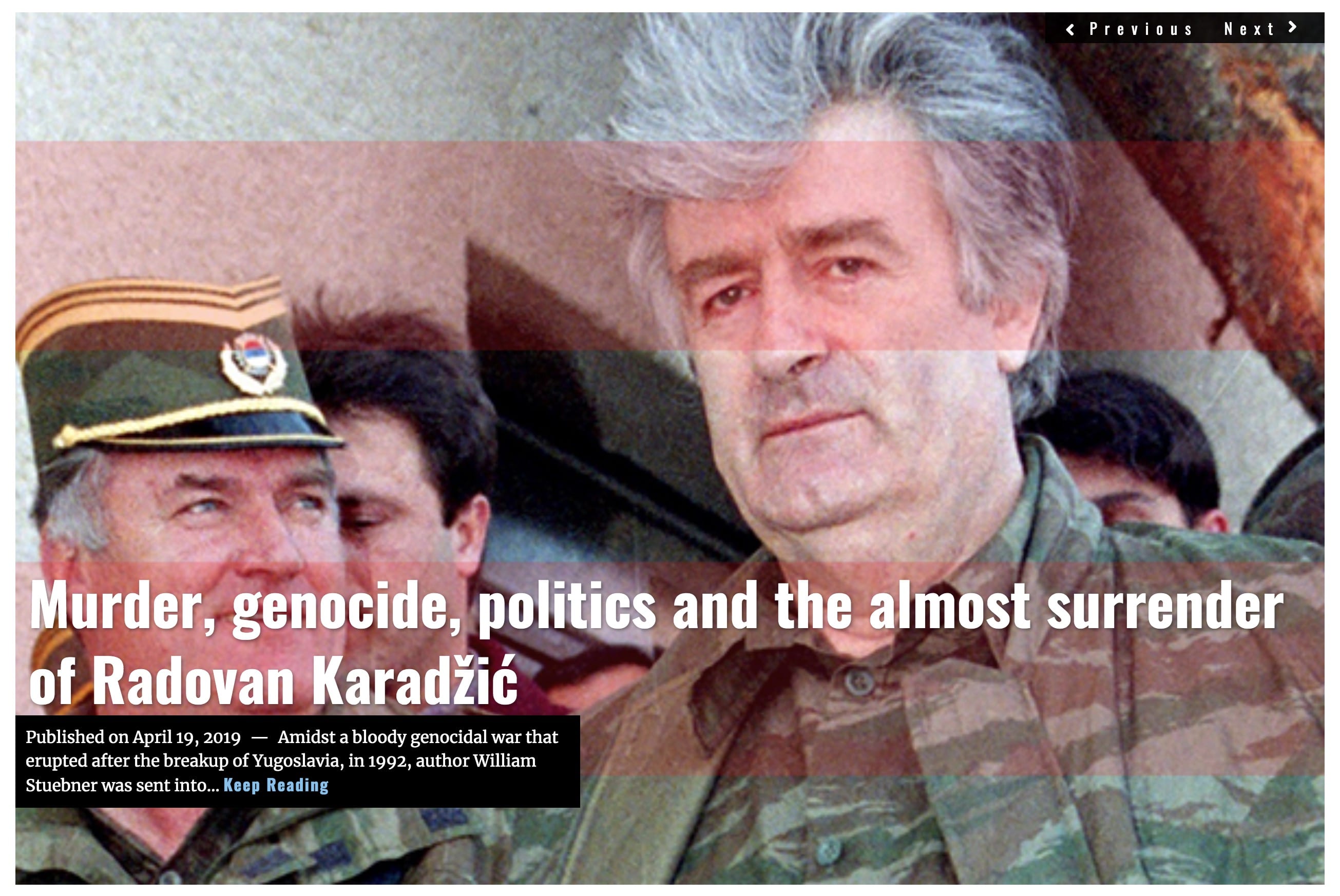
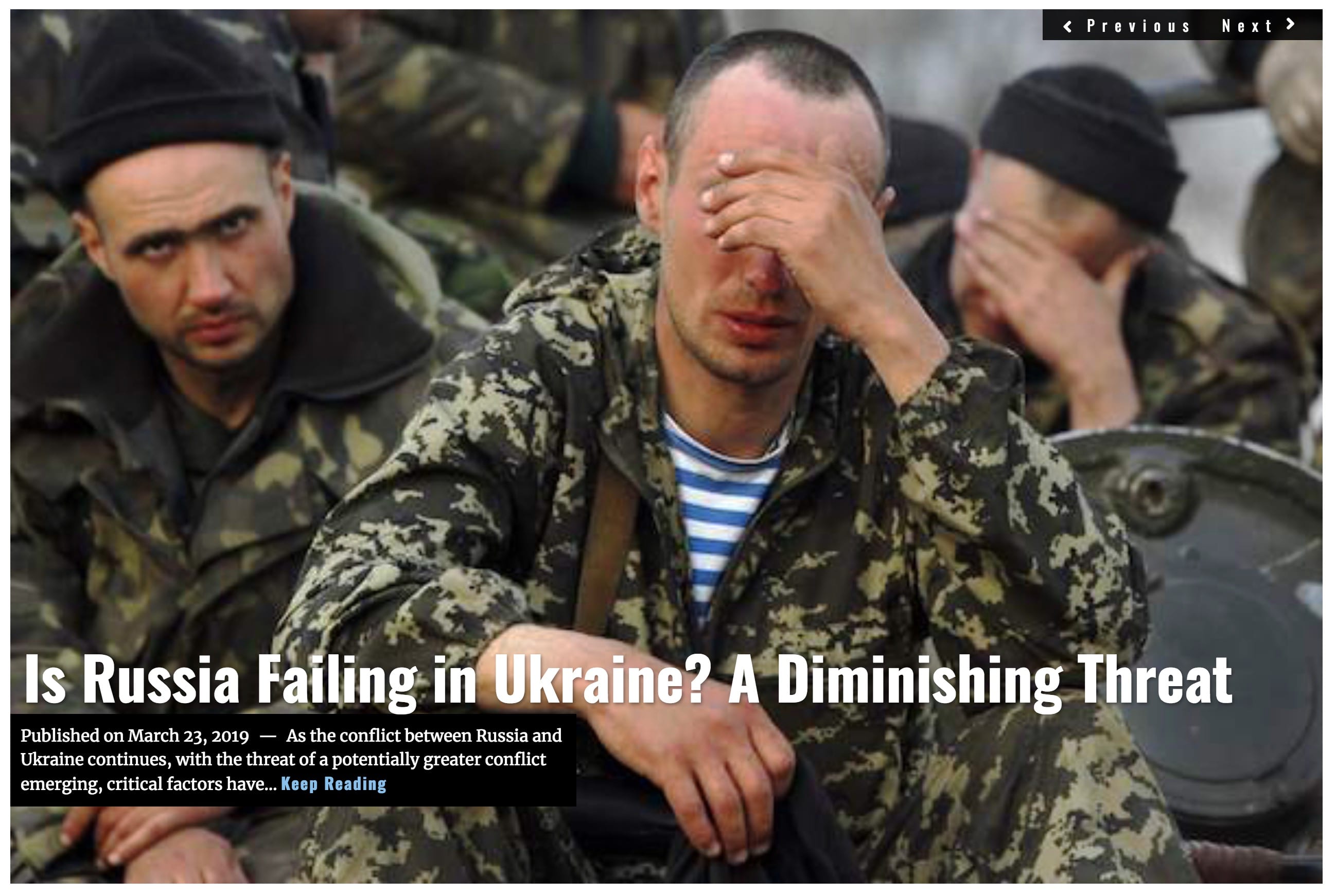
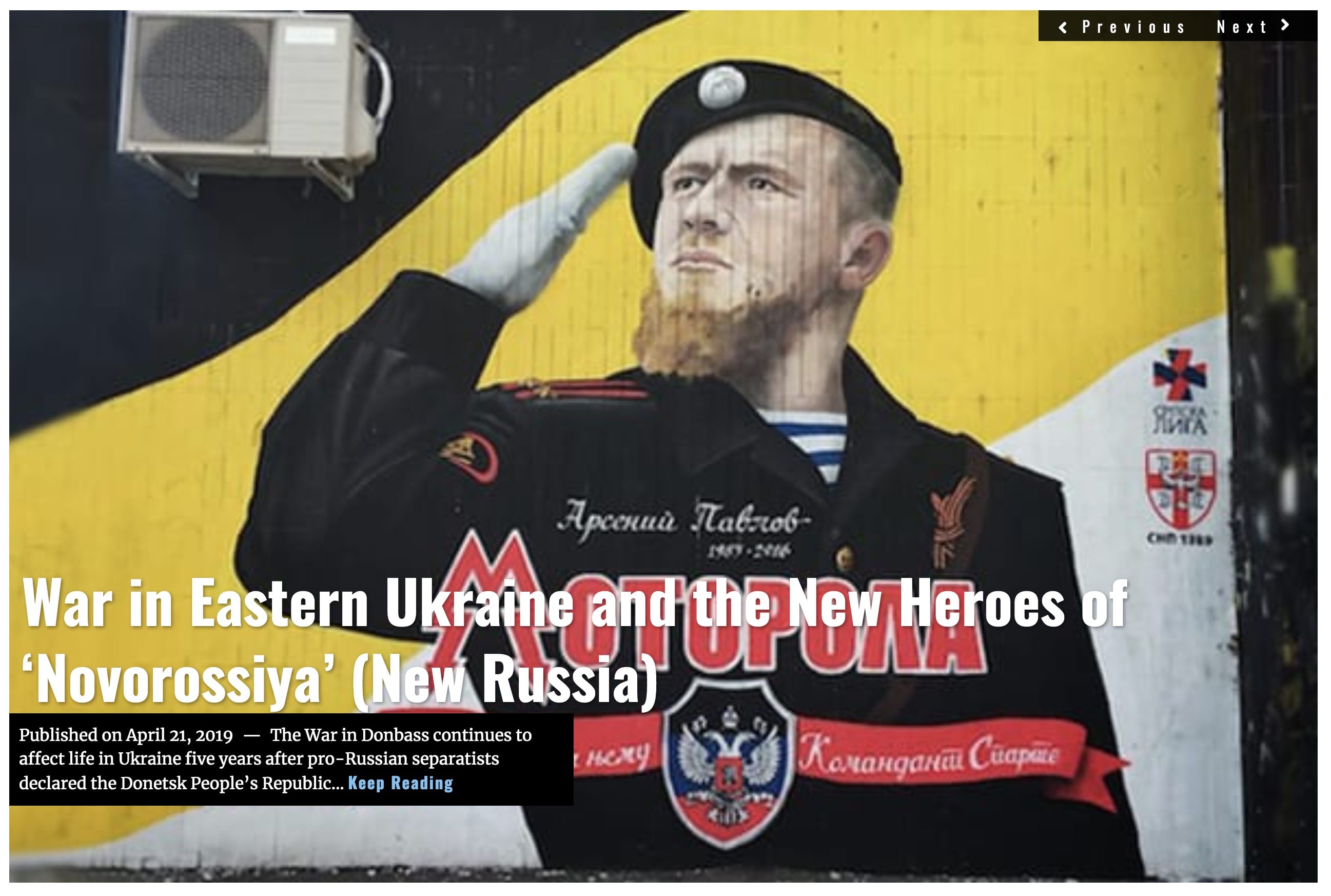

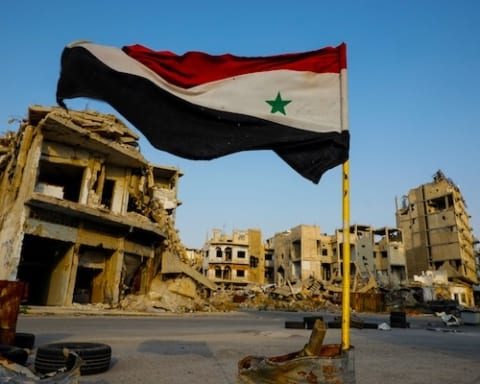
![A Trump war crime pardon dishonors us all [Lima Charlie News]](https://limacharlienews.com/wp-content/uploads/2019/05/A-Trump-war-crime-pardon-dishonors-us-all-Lima-Charlie-News-480x384.png)
